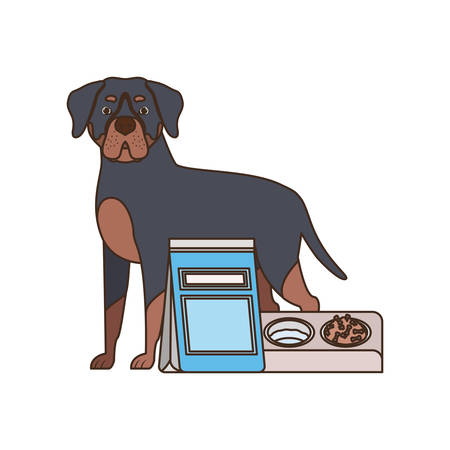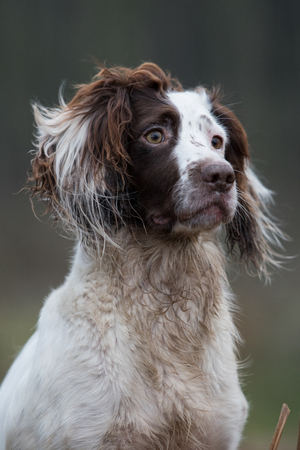Introduction to Pet Bereavement in the UK
The United Kingdom is a nation of passionate pet lovers. From loyal Labradors to cheeky tabby cats, pets are cherished members of British families, often holding a place as important as any human companion. This deep affection is woven into the very fabric of daily life—evident in everything from bustling village fêtes featuring dog shows, to city parks alive with dog walkers exchanging friendly nods. As such, when a beloved animal passes away, the sense of loss can be profound and deeply felt across all walks of British society.
In British culture, expressing grief over a pet is no longer seen as something frivolous or unusual. Instead, it’s increasingly recognised that the bond between people and their animals is both meaningful and powerful. Whether it’s sharing stories down at the local pub about a dearly departed spaniel, or placing a tribute in the village noticeboard, Brits find unique ways to honour their pets’ memories while navigating the complex emotions of bereavement.
| Common Ways Brits Express Pet Loss | Description |
|---|---|
| Memorial Gardens | Many communities offer pet memorial gardens where owners can place plaques or plant flowers in memory of their companions. |
| Online Tributes | Brits often share photos and stories on social media or dedicated websites to celebrate their pet’s life. |
| Pet Funerals & Ceremonies | Some choose formal ceremonies, reflecting traditional British respect for rituals and goodbyes. |
| Support Groups | Local groups and charities provide spaces to talk openly about grief, breaking the old “stiff upper lip” stereotype. |
This cultural shift has paved the way for specialised support networks throughout the UK, ensuring that nobody has to face pet bereavement alone. The following sections will explore how these local groups provide comfort and community during times of loss, drawing on uniquely British traditions and sensibilities.
2. The Role of Local Support Groups
Local bereavement support groups play a vital role in the British pet-loving community, offering a comforting shoulder to lean on when saying goodbye to a beloved companion. Across the UK, these groups have become essential havens where pet owners gather to share their stories, celebrate treasured memories, and simply have a cuppa together—a true British comfort. These spaces are often hosted in familiar venues like community halls, local libraries, or even cosy corners of village pubs, making them easily accessible and inviting.
What makes these groups particularly special is their understanding of how deeply we bond with our pets—often referring to them as “part of the family.” Here, it’s perfectly normal to shed a tear over a lost guinea pig or reminisce about a mischievous spaniel. Group facilitators are often trained volunteers who know just what it means to lose a furry (or feathery) friend, ensuring an empathetic atmosphere where everyone feels heard and respected.
| Typical Activities in UK Pet Bereavement Groups | Description |
|---|---|
| Story Sharing | Members take turns recounting joyful or poignant memories of their pets. |
| Cups of Tea & Biscuits | A staple of British comfort—tea breaks encourage informal chats and bonding. |
| Memory Crafting | Creating memory boxes, photo albums, or tribute cards together. |
| Guided Discussions | Facilitators lead conversations about grief stages and coping strategies. |
This communal approach not only helps members process their loss but also fosters new friendships rooted in shared experiences. Attending a group can feel like embarking on a small adventure—one where you meet fellow animal lovers, swap heartwarming tales, and remind yourself that you’re not alone in your feelings. Whether you find solace in a heartfelt story or discover a new mate over digestive biscuits, these local groups offer genuine comfort during difficult times.

3. Cultural Nuances in Grieving for Pets
When it comes to coping with the loss of a beloved pet, the British exhibit a set of customs and attitudes that are uniquely their own. While grief is universal, in the UK, it’s often expressed through a blend of reserved emotion, gentle humour, and heartfelt tradition. The language used by Brits can be noticeably understated; phrases like “my little mate’s gone to the Rainbow Bridge” or “we had to say goodbye” reflect both affection and an inclination to soften sadness with euphemism. Humour also plays a subtle but important role—sharing fond, sometimes cheeky anecdotes about pets at local gatherings can help lighten heavy hearts and foster a sense of camaraderie among those grieving.
Traditions further shape the British approach to pet bereavement. Many communities organise remembrance walks in local parks, where pet owners stroll together, share stories, and honour lost companions in the soothing embrace of nature. It’s not uncommon for families to create garden memorials at home—small corners adorned with flowers, engraved stones, or even a favourite toy as a tribute to their furry friend. These spaces become sanctuaries for quiet reflection and celebration of happy memories.
Common British Pet Bereavement Customs
| Custom | Description | Cultural Significance |
|---|---|---|
| Remembrance Walks | Group walks in parks or countryside dedicated to remembering pets | Fosters community support and shared healing in nature |
| Garden Memorials | Creating a small memorial space at home for a departed pet | Provides a private place for ongoing remembrance and comfort |
| Sensitive Language | Using gentle euphemisms when discussing pet loss (“crossed the Rainbow Bridge”) | Helps ease difficult conversations and respects emotions |
| Sharing Humorous Stories | Telling light-hearted tales about pets at gatherings or support groups | Lightens grief and strengthens social bonds through laughter |
This tapestry of customs illustrates how British pet owners navigate loss with both dignity and warmth. By blending sensitivity with tradition—and even a touch of classic British wit—local support groups ensure that no one has to face this journey alone.
4. Practical Support and Resources
When a beloved pet passes away, practical support can make a world of difference during such an emotional time. Across the UK, a range of charities, community organisations, and local veterinary practices step in to offer tangible resources for grieving pet owners. From helplines staffed by empathetic volunteers to online message boards where you can share your story with others who truly understand, these services are designed to provide comfort and guidance.
Key Practical Resources Available in the UK
| Resource Type | Description | How to Access |
|---|---|---|
| Helplines | Confidential telephone support provided by trained volunteers who listen and offer advice or simply a sympathetic ear. | Contact well-known charities such as Blue Cross Pet Bereavement Support or The Ralph Site Pet Loss Helpline; numbers available on their websites. |
| Local Veterinary Services | Many vets now offer bereavement leaflets, aftercare planning, and referrals to pet loss counselling services. | Ask your local vet practice about their bereavement support options at your next visit or check their website for guidance. |
| Message Boards & Online Forums | Safe spaces for sharing memories, stories, and photos of pets with others who have experienced similar loss. | Join forums hosted by organisations like Cats Protection, Dogs Trust, or The Blue Cross Community Hub online. |
| Community Hubs & Support Groups | In-person gatherings where locals can talk about their experiences and receive group support—often accompanied by tea and biscuits in true British fashion! | Look for notices at your local library, community centre, or animal charity shop window. |
The Importance of Accessible Support
The availability of these practical resources ensures that no one has to navigate pet loss alone. Whether you prefer a quiet phone call with a compassionate volunteer or the camaraderie found in a village hall meeting, UK communities are committed to helping each other through the grieving process. For many Britons, knowing there is immediate help close to home provides immense reassurance during difficult times.
5. Personal Tales of Comfort and Companionship
Across the UK, countless pet owners have found solace in the warm embrace of local bereavement support groups. These heartfelt communities not only offer a safe space to share memories but also foster genuine connections through shared experience. Let’s explore some touching anecdotes that highlight the profound impact these groups can have.
Jane’s Journey: Finding Hope in Hertfordshire
When Jane lost her beloved spaniel, Molly, she felt adrift and isolated. Attending her first local pet bereavement meeting was daunting, but she soon realised she wasn’t alone. “Hearing others talk about their own pets helped me feel understood,” Jane recalls. “We laughed about silly habits our animals had, and there were tears too – but mostly, I felt supported.”
Tom and Lily: A Shared Path in Manchester
After saying goodbye to his childhood cat, Tom struggled with grief until he discovered a community group at his local animal shelter. There, he met Lily, who had recently lost her rabbit. Through weekly gatherings, they formed a close friendship built on empathy and understanding. “Having someone who just gets it makes all the difference,” Tom shares.
Key Benefits Reported by British Pet Owners
| Benefit | Description |
|---|---|
| Emotional Support | A safe space to express grief without judgement. |
| Shared Stories | Listening and sharing memories help normalise feelings of loss. |
| Community Connection | Forming lasting friendships with those who truly understand. |
The Power of Shared Experience
The comfort found in these groups is rooted in the uniquely British spirit of camaraderie and compassion. From tea-fuelled chats in village halls to gentle walks in the park, every gathering reinforces the idea that nobody has to navigate pet loss alone. The stories above are just a few examples of how community, kindness, and companionship can light the way during difficult times.
6. How to Find and Join Support Groups Across the UK
Losing a beloved pet can feel overwhelming, but you don’t have to face it alone. Across the UK, there are numerous pet bereavement support groups ready to welcome you with open arms (and maybe even a cuppa!). Here’s how you can find local support, what to expect when attending for the first time, and a few practical tips to make your journey smoother.
Finding Local Bereavement Groups
The UK has a wealth of resources dedicated to helping pet owners navigate loss. From city-based meet-ups in London and Manchester to cosy gatherings in village halls across the countryside, you’re never far from compassionate company. Here’s a handy guide to get you started:
| Resource | Description | How to Access |
|---|---|---|
| The Blue Cross Pet Bereavement Support Service | Offers both telephone and online support, as well as information about local group meetings. | Visit Website |
| PDSA Pet Bereavement Support | Provides advice and links to community support groups throughout the UK. | Visit Website |
| Local Vets & Animal Charities | Many vet practices and animal rescue organisations run their own support sessions or know where to direct you locally. | Ask at your local vet surgery or check their noticeboards. |
| Meetup.com & Facebook Groups | Online platforms where locals arrange informal meet-ups for those grieving pets. | Search “pet bereavement” + your town/city on these platforms. |
What to Expect When Attending Your First Session
If it’s your first time joining a pet bereavement group, feeling nervous is completely normal—just remember, everyone there understands what you’re going through. Sessions usually start with introductions (no pressure if you’d rather just listen), followed by sharing stories or simply being present together. Some groups offer tea and biscuits—a true British comfort!
Practical Tips for Your First Visit:
- Arrive early: This gives you time to settle in and meet the facilitator before others arrive.
- No need to share if you’re not ready: Many people attend just to listen at first—there’s no expectation.
- Bring something comforting: Whether it’s a photo of your pet or their favourite toy, familiar items can help you feel connected.
- Dress comfortably: Groups are informal, so come as you are—even if that means wellies after a countryside stroll!
- Keep an open mind: Every group has its own character—try a few if the first isn’t quite your cup of tea.
A Final Note: You’re Not Alone
The journey through pet loss is unique for everyone, but support groups across the UK offer understanding hearts and listening ears at every step. Whether you’re in bustling Birmingham or tucked away in a Cornish village, reaching out could be the most comforting adventure you undertake after saying goodbye to your furry friend.

